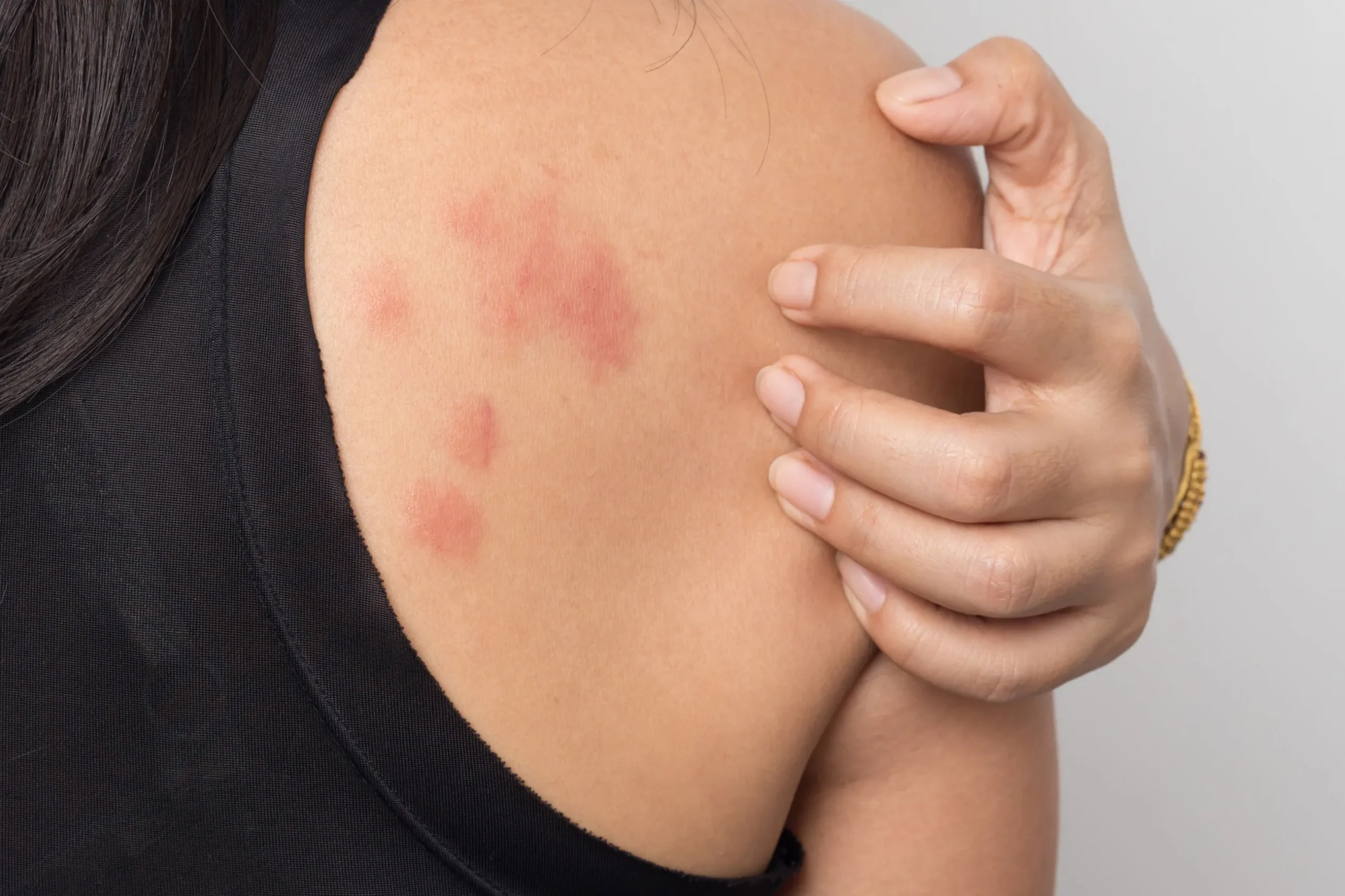Written by Dr. Ringpfeil

Hives are raised bumps that appear on the skin and are accompanied by intense itching. They can resemble mosquito bites or have unusual shapes and are often referred to as wheals. The medical term for hives is urticaria. Typically, hives last for less than 24 hours. Urticaria can be classified as acute or chronic, with the latter lasting longer than six weeks. Hives can have various causes, including insect bites, food, infections, and medications or supplements. Chronic urticaria can also be triggered by infections or medications, as well as physical factors such as skin stroking, pressure, cold, water, sun exposure, and exercise.
Hives can generally be diagnosed through a comprehensive medical history and physical examination, although occasionally a skin biopsy might be required. It is important to inform your healthcare provider about any over-the-counter medications, vitamins, herbal supplements, and prescription drugs you have taken or are currently taking. Disclosing all previous and existing medical conditions is also crucial. For chronic urticaria, blood tests are often performed to rule out infections, autoimmune diseases, or other underlying metabolic causes. Additionally, X-rays of the chest, sinuses, or teeth might be conducted to check for hidden infections.
The release of histamine from cells within the skin is responsible for the occurrence of hives. Therefore, the primary approach in managing the intense itching associated with hives is the use of oral antihistamines. Common antihistamines include H1 blockers like diphenhydramine (Benadryl), loratadine (Claritin), cetirizine (Zyrtec), and H2 blockers such as cimetidine (Tagamet) and ranitidine (Zantac). High doses and a combination of several antihistamines are often necessary to control itching. In some cases, leukotriene receptor antagonists, another class of oral medications, may be prescribed. Moreover, soothing the skin with anti-itch lotions containing camphor, menthol, or phenol (e.g., Sarna and Calamine lotion) is an important part of treatment. The use of oral steroids is rarely needed.
Living with hives can be challenging due to the intense itching. Following healthcare professionals’ recommendations regarding the use of oral antihistamines and topical soothing agents for the skin can be helpful. Most hives are temporary and resolve within a few days or weeks. For longer-lasting episodes, laboratory tests can provide reassurance by ruling out underlying infections or illnesses. If a medication is suspected as the cause, it may need to be discontinued under the guidance of the prescribing physician. Even after removing the triggering agent, hives may not immediately cease but may take weeks to disappear as the agent gradually leaves the body.
Preventing acute episodes of hives is often difficult, especially when the underlying cause is unknown. For chronic urticaria triggered by physical stimuli, avoiding those factors such as cold, pressure, water, and sun exposure can help reduce flare-ups. Continuation of oral antihistamines as prescribed can also serve as a preventive measure.
Patients ask Dr. Ringpfeil answers
Please feel free to use this form to ask our dermatologists questions about this treatment.